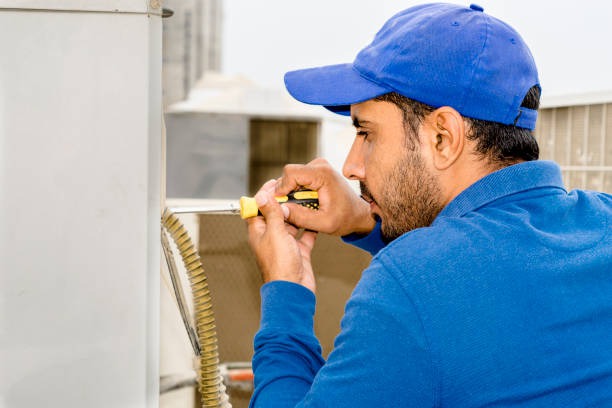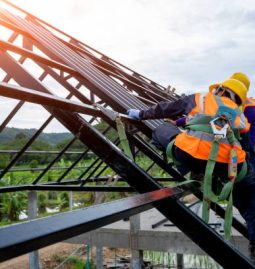Electrical emergencies can be frightening, not to mention dangerous. They can happen at any moment and arise for various reasons, including faulty wiring, overloaded circuits, or damaged appliances. It’s important to act quickly and carefully to ensure everyone’s safety. Yet, knowing the right actions to take can be challenging. Let’s look into what qualifies as an electrical emergency and how you can handle it safely before seeking professional help.
Common Types of Electrical Emergencies
Not every electrical problem is an emergency, but several conditions definitely qualify. Here are some to look out for:
-
Power Outages: While often a result of external issues like weather or utility company maintenance, sudden power loss in one part of a house, while lights remain on in others, might signal a serious electrical issue within your home.
-
Burning Smell or Sparks: If you notice a burning odor coming from an outlet or appliance, it’s a red flag that there may be faulty wiring or an overload that could lead to a fire.
-
Buzzing Noise: An unexplained buzzing sound from electrical systems often hints at an overloaded wire or a damaged circuit breaker.
-
Exposed Wiring: Any exposure to wires poses a high risk of electrical shock or fire.
Immediate Steps to Take During an Electrical Emergency
Knowing what to do in the middle of an electrical crisis can prevent potential hazards and may save lives. Here’s a rundown of immediate actions to consider taking:
1. Stay Calm and Assess the Situation
Always remain calm. Panic can lead to poor decisions. Take a deep breath and try to understand what is happening. Are there any immediate dangers, such as smoke, sparks, or a burnt smell? Assess the scope of the problem to determine if you can handle it or if you need professional intervention.
2. Unplug Appliances
If you determine it’s safe, unplug any devices or appliances near the issue. This could prevent further damage to the appliances and reduce fire risk. Always ensure your hands are dry and you’re standing on a dry surface when disconnecting any electrical devices.
3. Turn Off the Power Supply
If you suspect an emergency, head to your electrical panel and switch off the main power. Cutting the power can prevent further electrical damage and reduce the risk of a fire. If the area is dark, make sure you use a torch and ensure your footing is stable.
4. Avoid Water
Water conducts electricity, making it particularly hazardous during electrical emergencies. Ensure that the floor is dry, especially if you have to cut off the power supply near water sources. If a room is flooded, do not enter until the power is safely switched off.
When to Call a Professional
While some minor electrical issues can be handled with basic precautionary measures, others require professional expertise. Knowing when to reach out to an expert can help mitigate risks and ensure safety.
1. Persistent Burning Smell
A burning smell that doesn’t dissipate after turning off appliances and the main power is a sign of serious trouble. This issue often indicates faulty wiring or a malfunctioning circuit breaker. In such cases, contacting an electrician in Atlanta or a similar professional in your area is crucial for quick resolution.
2. Recurrent Tripping of Circuit Breakers
If circuit breakers trip frequently, there could be an ongoing problem in your electrical system. This might indicate overloaded circuits or faulty wiring that needs addressing. A qualified electrician can perform a thorough assessment and pinpoint these issues.
3. Major Electrical Storms
Electrical systems might sustain damage from lightning strikes after a significant storm. It’s wise to have a professional inspect and ensure everything is intact. Don’t attempt to repair storm-related electrical damage yourself.
4. Home Electrical Rewiring
For older homes, outdated or damaged wiring can pose significant risks, including fires. Getting home electrical rewiring in Atlanta services or similar can modernize your wiring system and mitigate such hazards. Professionals have the expertise to upgrade wiring safely and according to current building codes.
Safety Precautions to Minimize Electrical Hazards
While you can’t always prevent electrical emergencies, there are some everyday actions you can take to minimize risks.
1. Regular Maintenance Checks
Engage in routine checks of your electrical systems, including outlets, switches, and circuit breakers. If you notice any damage or wear, address it immediately to prevent larger issues. Consider scheduling annual professional inspections as well.
2. Safe Use of Appliances
Don’t overload outlets or extension cords. This habit is one of the primary causes of electrical fires. Also, unplug appliances like toasters, irons, and hairdryers when not in use.
3. Invest in Surge Protectors
Surge protectors safeguard your appliances during power surges, preventing potential damage. They are particularly useful in areas prone to frequent electrical storms.
4. Install Smoke Alarms
Smoke alarms can be lifesavers, detecting elements of fire before they become unmanageable. Install them throughout your home and test them regularly to ensure they’re working correctly.
Understanding the Role of Home Generator Services
Home emergencies, especially power outages, often highlight the need for reliable backup power. Opting for home generator services in Atlanta or a nearby location ensures you have consistent electricity when the grid fails. These professionals will help you choose and install the right generator for your home’s needs, giving you peace of mind during unpredictable circumstances.
Electrical Safety Education for Your Family
Safety education is vital for every household member. Even young children should understand basic electrical safety principles. Here’s how you can educate your family:
-
Explain the importance of reporting any unusual electrical behavior, such as sparks or burning smells.
-
Teach children to avoid sticking fingers or objects into outlets.
-
Have a family plan for evacuating the home in case of an electrical fire.
-
Incorporate regular safety drills into the family routine, ensuring everyone knows how to locate and operate power panels safely.
Final Thoughts
Dealing with electrical emergencies demands a level head, quick actions, and an understanding of when it’s time to call in the experts. By following the steps outlined above, you can manage immediate hazards and minimize risks until professionals take over. Ensuring your home’s electrical systems are up-to-date and well-maintained is a proactive step towards safety. Understanding and preventing potential risks, as well as educating those in your household, will help ensure a secure environment, making it less likely that you’ll face an electrical emergency in the first place. Stay safe, stay prepared, and never hesitate to seek professional guidance when needed.








